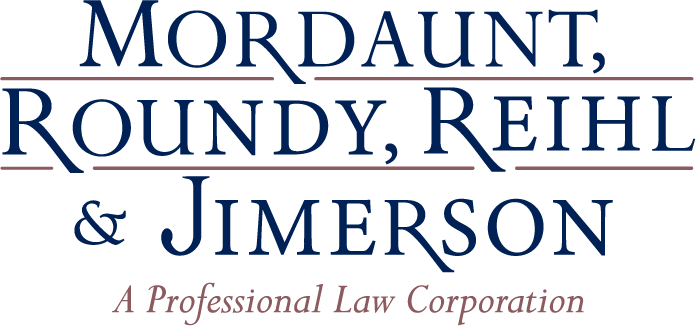Peer Review Confidentiality: Protection and Limitations
Physicians, risk managers, and health care professionals in general, have long recognized the benefits that peer review committees can have on the quality of medical care provided to patients. Peer review committees allow the free exchange of ideas among groups of medical professionals concerning issues of morbidity and mortality in patient care, without fear that the matters discussed and the conclusions reached will become public.
The California legislature, as a matter of policy, has determined that this free exchange of ideas and opinions is important. Therefore, they have provided protection in the law which prevents the compelled disclosure of a peer review committee's records or proceedings through the discovery process in a civil case. Despite the strength of this protection, there are limitations to it. This article serves as an overview of the protection afforded to peer review committee communications in civil legal proceedings in California, the limitations on that protection, and the steps that should be taken to preserve it.
Overview of the Protection
The protection afforded to peer review proceedings stems from California Evidence Code section 1157. The provisions of that statute provide that neither the proceedings nor records of organized committees of health care professionals in a hospital or of a peer review body shall be subject to discovery. The statute further provides that no person in attendance at a meeting of one of these committees shall be required to testify as to what transpired at that meeting.
The practical effect of these provisions is that, in the event a court proceeding arises over the medical care discussed at a committee meeting, none of the information or records of the meeting can be subpoenaed, and none of the participants in the proceedings can be compelled to disclose any of the matters discussed, any of the criticisms of the care that may have been voiced, or any conclusions reached by the group.
As alluded to above, there are different kinds of committees that perform peer review functions. State law provides for four basic types of peer review bodies in addition to the traditional review committee in a hospital. These include:
- medical or professional staffs of properly licensed free clinics and ambulatory surgical centers;
- health care service plans;
- any medical, psychological, marriage and family therapy, social work, dental or podiatric professional society having as members at least 25 percent of the eligible licentiates in the area in which the society functions; and
- committees organized by any entity consisting of or employing more than 25 licentiates of the same class, including practice groups, which functions for the purpose of reviewing the quality of professional care provided by members or employees of that entity.
Peer review proceedings in any of these properly organized groups would enjoy the same confidentiality protections as those of the hospital based committee.
Limitations on the Protection
Despite the seemingly broad scope and strength of the peer review protection, there are limitations. The primary limitation to the protection lies with the members of committees themselves. Although the law provides that no member of a peer review committee can be compelled to testify to what transpires at a committee meeting, any member may freely do so if he or she desires. The privilege against testifying is held by each individual on the committee, and not by the committee itself.
Further, the protection does not apply to any statements made by a person at a committee meeting where that person is a party to an action or proceeding where the subject matter of the action or proceeding is discussed. Thus, statements by a physician involved in a medical malpractice action may be used against him or her if the case giving rise to the lawsuit is reviewed at a committee meeting where that physician appears to discuss the care rendered. Further, the protection over a committee's entire proceeding will be compromised if a physician serves on a committee where his or her own conduct is being reviewed.
The protections against discovery of the proceedings of a peer review committee also do not apply to any person requesting hospital staff privileges. Thus, the staff privilege committee may gain access to the records of any peer review committee for the purpose of evaluating the applicant's qualifications for staff privileges. Peer review records are also discoverable in suits by doctors claiming arbitrary or wrongful denial of hospital staff privileges.
Other limitations to the peer review protection arise from the law's complex framework regarding the make up of peer review bodies As one can well imagine, care must be taken, prior to any review taking place by a committee, that the committee has been properly organized and formed. If, for example, the committee is an independent group, outside the hospital setting, care must be taken to comply with the membership number requirements. The law provides that such a group must be comprised of at least 25 licentiates of the same class. Presumably this would require that the group consist of, for example, 25 or more internists, or 25 or more orthopedic surgeons. Some commentators have suggested that the "same class" requirement is less stringent than that, and would apply to independent physician associations and medical groups. At this point, however, the law remains unclear.
If an improperly formed committee reviews a case, any proceedings held would be vulnerable to discovery. In the worst case scenario, participating members of the ill formed committee could be compelled to testify in court concerning the content of the committee's discussions and the opinions expressed by individual committee members. Any records or reports generated by the committee would also be subject to discovery.
Finally, peer review protections are inapplicable to criminal proceedings. Therefore, if a health care practitioner is charged with criminal conduct arising from his or her medical care, the prosecution would be able to access peer review records for the purpose of helping to prove their case.
Maintaining the Protection
Because there are several exceptions to the peer review protection, care must be taken to preserve and maintain the protection. Physicians and other health care professionals should acquaint themselves with the rules governing peer review bodies and make sure that the ones on which they serve are properly organized.
Furthermore, because the peer review protection can be waived by any individual committee member, even unwittingly, a physician should be careful not to disclose, at a deposition or at a court hearing, or in informal discussions with colleagues, any information discussed at a peer review committee meeting without first discussing the matter with his or her attorney. Physicians should exercise extreme caution in not placing any notations in a patient's chart indicating that any peer review activity has taken place, or any that any conclusions were reached with respect to the quality of care. Any such entries will undoubtedly become troublesome for the physician if litigation ever arises concerning that physician's care.
Most malpractice insurance carriers will provide their policy holders with legal counsel for the purposes of representing them at a deposition or court hearing. A physician should not hesitate to request representation for a deposition from their carrier, especially where the issue of peer review is anticipated to arise. Their attorney can then take steps to prepare the physician for the deposition, and prevent the disclosure of any protected information.
Conclusion
The peer review system remains a very important tool in improving the quality of patient care. The protection provided by law which prevents discovery of the records and proceedings of peer review committees is a vital component in maintaining the integrity of the system. Practitioners must remain vigilant in overseeing that the peer review bodies they participate in are properly organized and formed, and that the information discussed among the members of those bodies remains confidential.

